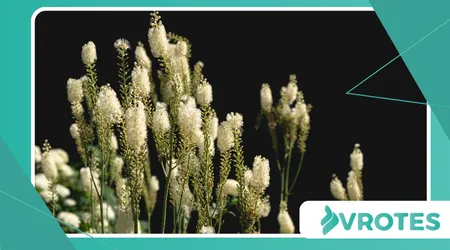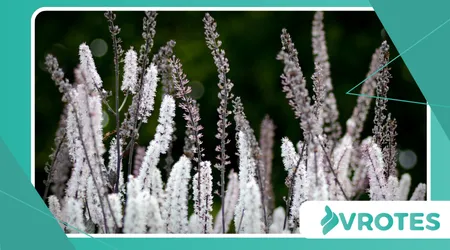The Truth About Black Cohosh: Benefits and Risks

Black cohosh has long been championed as a solution, but what is the real truth about black cohosh?
Anúncios
Menopause is a transformative stage in a woman’s life, often accompanied by challenging symptoms like hot flashes, night sweats, and mood swings.
In the quest for natural relief, many turn to herbal remedies. This deep dive separates fact from fiction, exploring its history, proven benefits, and potential risks with a critical eye.
We’ll examine the scientific consensus and provide you with the nuanced information you need to make an informed decision.
The Historical Context: From Native American Wisdom to Modern Medicine
Native American tribes first used black cohosh root, or Actaea racemosa, for women’s health issues.
Anúncios
They recognized its potential for treating menstrual irregularities and menopausal symptoms.
This traditional knowledge paved the way for its introduction into modern herbal medicine. It gained popularity in Europe and the United States, becoming a go-to supplement.
Its widespread use, however, has also led to a significant amount of debate and scrutiny in the scientific community.
The plant’s complex chemical makeup, including compounds like triterpene glycosides, is believed to be responsible for its effects.
Read more: What Your Hair Is Telling You About Hormonal Shifts
These compounds may interact with the body’s endocrine system. They do not, however, act as a phytoestrogen, a common misconception.
This distinction is crucial for understanding its mechanism of action. The way it works is more akin to a conductor guiding an orchestra.
It helps regulate the body’s internal systems without replacing hormones.

The Benefits: What the Science Says
Scientific research on black cohosh has yielded mixed but promising results. A significant body of evidence suggests it can be effective for some menopausal symptoms.
One of the most studied benefits is its ability to reduce the frequency and severity of hot flashes.
For instance, a study published in the journal Menopause indicated that a specific black cohosh extract was more effective than a placebo in reducing hot flashes in a group of perimenopausal women.
This finding supports its traditional use and offers a glimmer of hope for those seeking relief.
Beyond hot flashes, some users report improvements in sleep and mood. The holistic impact on menopausal women’s quality of life is a significant factor.
Read here: How to Track Hormone Patterns to Predict Symptom Flare‑Ups
While not a cure-all, it can be a valuable part of a broader wellness strategy. A 2023 review of clinical trials highlighted the positive impact on quality of life scores.
The review noted that women taking black cohosh reported feeling more in control of their symptoms. This emotional and psychological benefit should not be understated.
The truth about black cohosh is not that it’s a miracle cure, but rather a potentially helpful tool. Its effectiveness can vary widely from person to person.
A woman’s response depends on her unique body chemistry, the specific product used, and the severity of her symptoms.
Understanding the Risks and Side Effects
While black cohosh is generally considered safe for most people, it’s not without potential risks.
The most common side effects are mild and include stomach upset, headaches, and dizziness. However, more serious concerns have been raised regarding liver health.
++ Natural Detox Baths to Soothe Body and Mind
There have been rare reports of liver damage associated with its use. These cases have prompted caution from health organizations and led to warnings on many supplement labels.
| Potential Side Effects of Black Cohosh | Severity |
| Upset stomach, nausea | Mild |
| Headaches, dizziness | Mild |
| Liver damage | Serious (Rare) |
| Low blood pressure | Moderate (Rare) |
| Weight gain | Mild (Less common) |
The table above summarizes the potential side effects. It’s essential to understand that serious side effects are rare, but they are a valid concern.
It’s imperative to consult a healthcare provider before starting any new supplement, especially if you have pre-existing liver conditions.
This is the only way to get a complete and personalized picture.
For example, a woman with a history of hepatitis should be particularly cautious. The same goes for someone taking other medications that impact liver function.
The combination could increase her risk. Another key point is the lack of regulation in the supplement industry.
The quality and purity of products can vary significantly. This makes it difficult to ascertain the true cause of adverse effects.
The Problem with Product Purity: A Critical Look
The biggest challenge with herbal supplements is inconsistent quality. The truth about black cohosh is that not all products are created equal.
The concentration of active ingredients can vary dramatically between brands. Some products may not contain any black cohosh at all.
A 2021 study by the New York State Attorney General’s office found that many herbal supplements sold in major retail stores did not contain the listed ingredients.
This lack of standardization makes it difficult for consumers to know exactly what they are taking.
This is where the user’s role becomes crucial. You must become a savvy consumer. Look for products that have been independently tested and verified by third-party organizations like the USP (U.S.
Pharmacopeia) or NSF International. These certifications provide an extra layer of assurance. Choosing a reputable brand is not just a preference; it is a necessity.
This brings us to a crucial point: Is a herbal remedy’s efficacy worth the risk if you don’t know what’s in the bottle?

Making an Informed Decision
Ultimately, the decision to use black cohosh is a personal one. The truth about black cohosh is that it is a complex subject with no simple answers.
It is not a magic bullet, but it has shown promise in providing relief for some. The key is to approach it with caution and realism.
Always discuss your options with a healthcare professional, especially one knowledgeable about herbal remedies. They can help you weigh the potential benefits against the risks.
Remember that a holistic approach to menopause is often the most effective. This includes a balanced diet, regular exercise, stress management, and a supportive community.
Black cohosh could be a part of this picture, but it should not be the entire masterpiece.
Frequently Asked Questions
1. Is black cohosh a phytoestrogen?
No, this is a common misconception. Research indicates that black cohosh does not contain phytoestrogens and does not act like them.
Its mechanism of action is different, affecting the body’s neurotransmitters and endocrine system without directly mimicking estrogen.
2. Can I take black cohosh if I have a history of breast cancer?
Given the complexities and ongoing research, it is crucial to consult your oncologist or a healthcare provider.
While some studies suggest it may be safe, the lack of definitive, long-term data means a personalized assessment is essential.
3. How long does it take for black cohosh to work?
The effects of black cohosh are not immediate. Most people start to notice a difference after 4 to 8 weeks of consistent use.
It requires patience and regular administration to see potential benefits.
4. Where can I find the most reliable information on this supplement?
Look for sources like the National Center for Complementary and Integrative Health (NCCIH) or reputable medical journals. Be wary of marketing claims and anecdotal evidence without scientific backing.
5. How much black cohosh should I take?
The typical dose used in most studies is 20 to 40 milligrams of a standardized extract, taken twice a day.
However, always follow the specific instructions on the product label and consult your doctor for the appropriate dosage for your needs.
++ Uses and side effects of black cohosh for menopause
